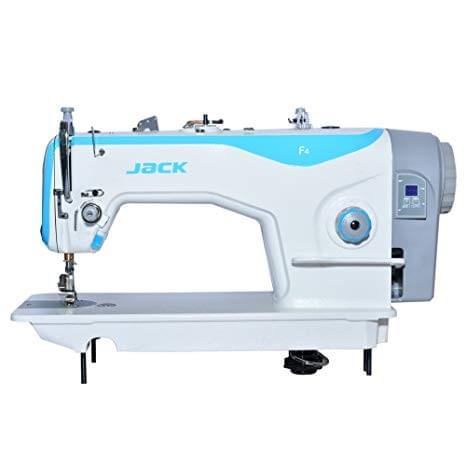In this article two methods are used to measure the temperature of needle eye during the high speed of sewing and the results are compared for calculating the precision in the measurement,Needle heatup is a big issue for apparel industry especially for automobile industry seat covers where a lot of synthetic materials are used which get damaged by needle heat at high speed of sewing machine,in this article thermocamera and thermocouple are used to calculate the precise temperature of needle eye and then 100% polyester 35x3 Tex thread is taken for sewing,the lockstitch sewing machine is run at 1000rpm,2000rpm and 3000rpm respectively and the both methods are used to obtain the accurate needle temperature and finally thread tensile properties the article is very helpful in predicting the exact temperature of needle in lock stitch machine at different stages of sewing process.
Industrial sewing is one of the most commonly used manufacturing operations. Its applications can be found in the manufacturing of garments, shoes, furniture, and automobiles, just to name a few. Every day, millions of products, ranging from shirts to automotive airbags, are sewn. Hence, even a small improvement may result in significant corporate benefits. In heavy industry sewing, such as sewing of automobile seat cushions, backs and airbags. https://vssewingmachine.in/ It requires not only high productivity, but also high sewing quality (i.e. good appearance and long-lasting stitches). Typically, the material being sewn includes single and multiple plies of synthetic fabric or leather, and sometimes backed with plastics. These materials are much more difficult to sew compared to ordinary sewing applications. In recent years, in order to increase the sewing productivity, high speed sewing has been used extensively. Currently, sewing speeds range from 2,000∼6,000rpm. In heavy industrial sewing, typical sewing speeds range from 1,000∼3,000rpm., needle heating due to the friction between the needle and the fabric is severe. The friction generates heat, part of which is absorbed by the fabric and part by the needle. The heat absorbed by the fabric is spread out along the seam, but the heat absorbed by the needle accumulates. Depending on sewing conditions the maximum needle temperatures range from 100°C∼300°C. This high temperature weakens the thread, since thread tensile strength is a function of temperature [1]. and infrared pyrometer[1,2] These experimental methods are accurate and reliable [2,3].
Experimental Part Temperaure 26 o C and RH 60% The (TJ36-CAIN-010U-6) thermocouple was inserted inside the groove of the needle and attached ,the lock stitch machine was set at 1000,2000 and then 3000 rpm,two layer basic 2/1 twill denim was stitched by 35x3 Tex 100%polyester thread(commonly used for denim stitching) for continous 90 seconds and temperature was recorded for every second by the thermocouple for each speed of the machine,Then thermocamera was adjusted for emmissivity of the needle and found out to be 0.08 for chromium needle at 38 o C and then tested it with callibrated temperature of the needle and found it correct ,the camera was placed 40cm away from the needle and again the machine made to stitch at different speeds and thermocamera took reading at every 10seconds for continous stitching of 90 seconds,The process was repeated for 5 times for both thermocouple and thermocamera.
Measurement by thermocouple is not non-contact way of measuring the needle temperature and filling the needle groove with thermocouple changes its thermal properties but the VS Enterprises Thermocouple shows more precise every second meaurement of temperature, ,whereas the thermocamera measurements are with more deviation but still the observations are near to the temperature measured by the thermocouple, cooling of needle by external means can reduce the needle temperature at the stitching process.but the still use of fan reduce the temperature of needle to some extent and only a reduction of 15% was noted in the temperature of needle with the installation of fan,which reduces the temperature conventionally by flowing air to the needle,the thread is damages continously as shown by the SEM pictures by the friction at the needle eye and needle temperatureThis is part of bigger research eventually the impact on sewing thread and frictional forces are claculated.
